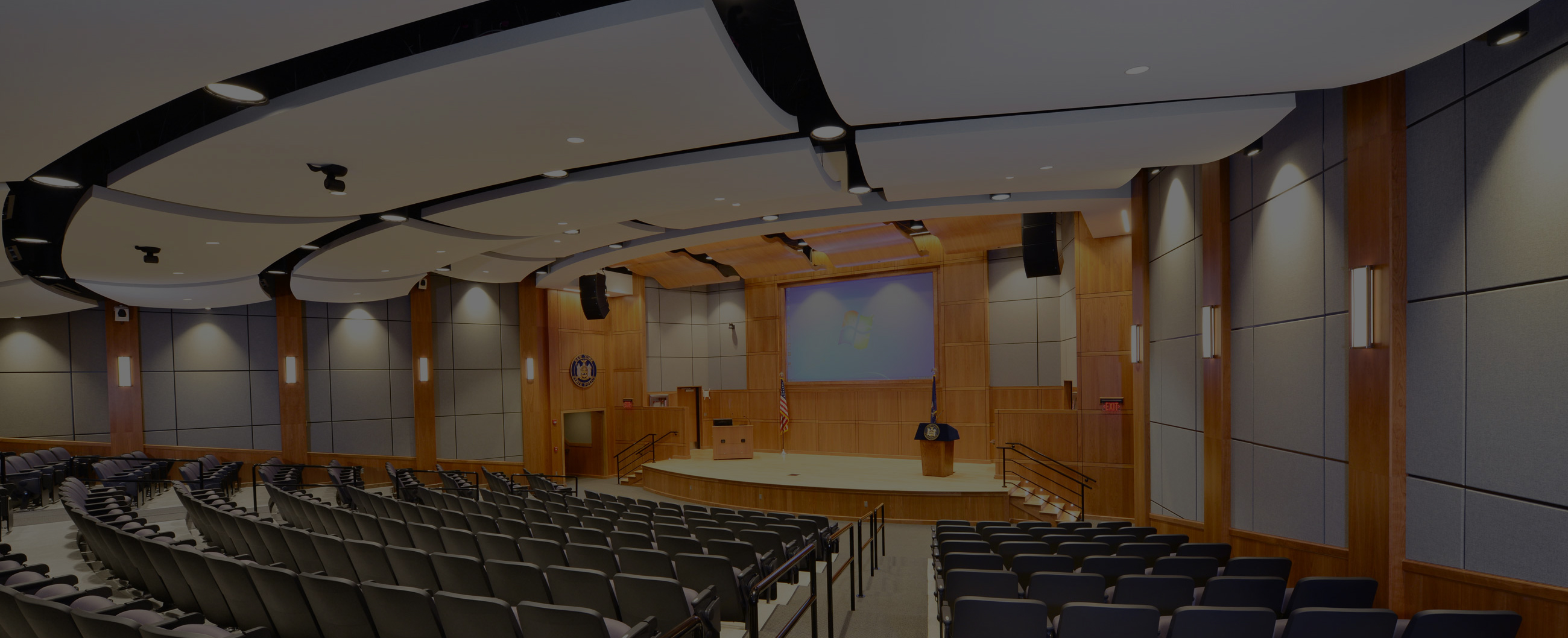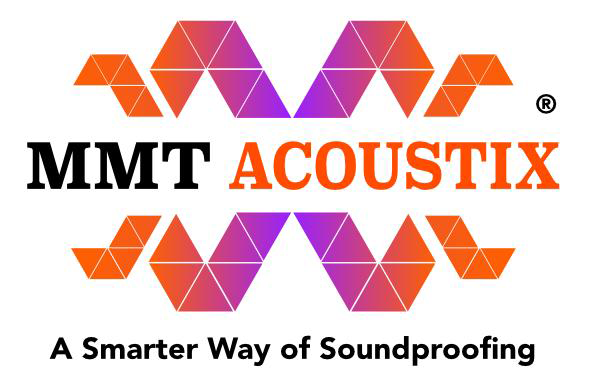
DIY vs Professional Soundproofing: Which One Should You Choose?
DIY vs Professional Soundproofing: Which One Should You Choose?
Why Soundproofing is Essential
Whether it’s noisy neighbors, traffic sounds, or home theatres and studios, soundproofing creates a peaceful environment by blocking unwanted noise and improving interior acoustics. However, a key question arises: Should you go DIY or hire professionals?
The answer depends on your budget, project size, technical requirements, and desired performance (STC/NRC ratings).
DIY Soundproofing: Affordable, Quick Fixes
DIY soundproofing is ideal for small-scale projects or minor noise issues. It’s budget-friendly and requires minimal tools.
Best DIY Soundproofing Solutions:
1
Soundproof Curtains (STC 27)
Blocks up to 80% of street noise.
Quick, rental-friendly solution for bedrooms and living rooms.
2
Door Seals & Sweeps
EPDM perimeter seals and bottom sweeps block 30–40% of door leakage.
3
Acoustic Foam Panels (NRC 0.90)
Shapes: Galaxy, Pyramid, Curve.
Improves internal sound clarity in home studios or gaming rooms.
4
Bookshelves & Rugs
Dense furniture and thick carpets add passive mass to walls/floors.
When DIY Works Best:
Rental apartments (non-invasive options).
Bedrooms/offices with mild noise issues.
Echo control (not full soundproofing).
Limitations of DIY Soundproofing:
Cannot block high-decibel noise (traffic, loud neighbors).
Lacks STC-rated performance.
Doesn’t address low-frequency vibration (bass, machinery hum).
Professional Soundproofing: Engineered Silence
Professional soundproofing is ideal for serious noise problems, premium builds, and code-compliant projects.
1
SoundBlanket® MLV (Mass Loaded Vinyl)
STC: 27–40, blocks airborne noise.
Installed behind drywall/ceilings.
2
BassBloc® (Low-Frequency Damping)
NRC: 0.85–0.95, controls vibration from bass/music and heavy machinery.
3
Echsorbix® Felt Panels (NRC 0.90)
PET-based acoustic panels for offices, gyms, and residences.
4
Fabric-Wrapped Panels & Wooden Slats
Premium NRC absorption for hotels, theatres, and boardrooms.
5
Floating Floors & Double-Stud Walls
Decoupling structures achieve STC 55+, meeting hotel/residential codes.
When to Hire Professionals:
When to Hire Professionals:
Home theatres & recording studios (STC 55+, NRC 0.90+ needed).
Hotels/apartments needing code-compliant walls.
Industrial or mechanical rooms (low-frequency vibration control).
Confidential spaces (corporate boardrooms, government offices).
Which Should You Choose?
Criteria
DIY Soundproofing
Professional Soundproofing
Cost
Low to Moderate
Higher upfront, long-term value
Noise Reduction
5–10 dB (minor relief)
15–30+ dB (certified STC 50+)
Skill Required
Basic DIY skills
Installed by certified acoustic teams
Materials Used
Curtains, foam, seals
MLV, BassBloc®, NRC panels, floating floors
Best For
Rentals, light noise issues
Hotels, offices, studios, apartments
Case Study: Mumbai Apartment
Issue:
Noisy neighbor TV and traffic sounds.
DIY Attempt:
Curtains + foam panels (limited effect, ~5 dB reduction).
Result:
Achieved STC 52+, creating hotel-grade quietness.
Professional Fix:
Installed SoundBlanket® MLV (STC 32) behind walls.
Added BassBloc® (NRC 0.85) for vibration damping.
Finished with felt acoustic panels (NRC 0.90).
Which Should You Choose?
DIY
Good for temporary fixes, mild noise, and budget constraints.
Professional
Best for permanent solutions, luxury builds, and serious noise isolation needs.
FAQs
A: Yes. Begin with curtains and door seals, then add MLV, BassBloc®, and panels for full isolation.
A: No. Foam treats echo (NRC) but does not block noise (STC).
A: Varies by project size—home theatres and bedrooms typically require MLV + BassBloc® wall assemblies for STC 50+.
Conclusion: Build Acoustic Comfort That Lasts
For lasting results, professional soundproofing with MLV, BassBloc®, and NRC-rated panels outperforms DIY quick fixes. However, a hybrid approach—starting with DIY for mild noise and upgrading to professional materials for serious issues—offers the best flexibility.
Contact MMT Acoustix today for ASTM-certified materials and expert soundproofing consultation tailored to your space


Why Soundproofing is Essential
Whether it’s noisy neighbors, traffic sounds, or home theatres and studios, soundproofing creates a peaceful environment by blocking unwanted noise and improving interior acoustics. However, a key question arises: Should you go DIY or hire professionals?
The answer depends on your budget, project size, technical requirements, and desired performance (STC/NRC ratings).
DIY Soundproofing: Affordable, Quick Fixes
DIY soundproofing is ideal for small-scale projects or minor noise issues. It’s budget-friendly and requires minimal tools.
Best DIY Soundproofing Solutions:
1
Soundproof Curtains (STC 27)
Blocks up to 80% of street noise.
Quick, rental-friendly solution for bedrooms and living rooms.
2
Door Seals & Sweeps
EPDM perimeter seals and bottom sweeps block 30–40% of door leakage.
3
Acoustic Foam Panels (NRC 0.90)
Shapes: Galaxy, Pyramid, Curve.
Improves internal sound clarity in home studios or gaming rooms.
4
Bookshelves & Rugs
Dense furniture and thick carpets add passive mass to walls/floors.
When DIY Works Best:
Rental apartments (non-invasive options).
Bedrooms/offices with mild noise issues.
Echo control (not full soundproofing).
Limitations of DIY Soundproofing:
Cannot block high-decibel noise (traffic, loud neighbors).
Lacks STC-rated performance.
Doesn’t address low-frequency vibration (bass, machinery hum).
Professional Soundproofing: Engineered Silence
Professional soundproofing is ideal for serious noise problems, premium builds, and code-compliant projects.
1
SoundBlanket® MLV (Mass Loaded Vinyl)
STC: 27–40, blocks airborne noise.
Installed behind drywall/ceilings.
2
BassBloc® (Low-Frequency Damping)
NRC: 0.85–0.95, controls vibration from bass/music and heavy machinery.
3
Echsorbix® Felt Panels (NRC 0.90)
PET-based acoustic panels for offices, gyms, and residences.
4
Fabric-Wrapped Panels & Wooden Slats
Premium NRC absorption for hotels, theatres, and boardrooms.
5
Floating Floors & Double-Stud Walls
Decoupling structures achieve STC 55+, meeting hotel/residential codes.
When to Hire Professionals:
When to Hire Professionals:
Home theatres & recording studios (STC 55+, NRC 0.90+ needed).
Hotels/apartments needing code-compliant walls.
Industrial or mechanical rooms (low-frequency vibration control).
Confidential spaces (corporate boardrooms, government offices).
Which Should You Choose?
| Criteria | DIY Soundproofing | Professional Soundproofing |
|---|---|---|
| Cost | Low to Moderate | Higher upfront, long-term value |
| Noise Reduction | 5–10 dB (minor relief) | 15–30+ dB (certified STC 50+) |
| Skill Required | Basic DIY skills | Installed by certified acoustic teams |
| Materials Used | Curtains, foam, seals | MLV, BassBloc®, NRC panels, floating floors |
| Best For | Rentals, light noise issues | Hotels, offices, studios, apartments |
Case Study: Mumbai Apartment
Issue:
Noisy neighbor TV and traffic sounds.
DIY Attempt:
Curtains + foam panels (limited effect, ~5 dB reduction).
Result:
Achieved STC 52+, creating hotel-grade quietness.
Professional Fix:
Installed SoundBlanket® MLV (STC 32) behind walls.
Added BassBloc® (NRC 0.85) for vibration damping.
Finished with felt acoustic panels (NRC 0.90).
Which Should You Choose?
DIY
Good for temporary fixes, mild noise, and budget constraints.
Professional
Best for permanent solutions, luxury builds, and serious noise isolation needs.
FAQs
A: Yes. Begin with curtains and door seals, then add MLV, BassBloc®, and panels for full isolation.
A: No. Foam treats echo (NRC) but does not block noise (STC).
A: Varies by project size—home theatres and bedrooms typically require MLV + BassBloc® wall assemblies for STC 50+.
Conclusion: Build Acoustic Comfort That Lasts
For lasting results, professional soundproofing with MLV, BassBloc®, and NRC-rated panels outperforms DIY quick fixes. However, a hybrid approach—starting with DIY for mild noise and upgrading to professional materials for serious issues—offers the best flexibility.
Contact MMT Acoustix today for ASTM-certified materials and expert soundproofing consultation tailored to your space


